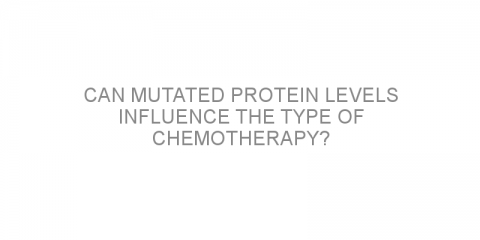In a nutshell This study investigated the use of different clinical factors in predicting pathological complete response to neoadjuvant chemoradiotherapy among rectal cancer patients. Some background Neoadjuvant therapy in rectal cancer refers to treatments given before surgery, such as chemotherapy and/or radiation treatments. Chemoradiation is...
Read MoreCurrent treatment status-Undergoing active treatment Posts on Medivizor
A new hormonal therapy for castration resistant prostate cancer
In a nutshell This early phase study assessed the efficacy and safety of a new drug, Orteronel (TAK-700), in patients with castration-resistant prostate cancer. Some background Androgen deprivation therapy (ADT), or castration therapy, is the standard of care for advanced prostate cancer. ADT usually involves either surgical...
Read MorePredicting response to bevacizumab treatment
In a nutshell This study evaluated whether past surgery could be used to predict response to bevacizumab (Avastin) treatment among metastatic cancer patients. Some background Combined treatment with bevacizumab and chemotherapy is the standard of care for the treatment of metastatic (wide spread) colorectal cancer. Bevacizumab acts by inhibiting...
Read MoreUsing tumor percentage to predict recurrence in prostate cancer
In a nutshell This study examined tumor volume, tumor percentage and number of tumor foci as predictors of prognosis in prostate cancer. Some background Multiple variables are often used to predict prognosis among prostate cancer patients. These including PSA levels (prostate specific antigen; a protein produced by prostate cells whose levels rise...
Read MoreContinuous versus intermittent androgen deprivation therapy
In a nutshell This study compared the efficacy of intermittent and continuous androgen deprivation therapy and their affect on quality of life. Some background Androgen deprivation therapy (ADT) is a hormone therapy used in the treatment of prostate cancer. The goal of this therapy is to reduce the levels of androgens (male hormones such as...
Read MoreParenteral estrogen safe and effective as androgen deprivation therapy
In a nutshell This review evaluated the efficacy and safety of parenteral estrogen therapy among prostate cancer patients undergoing androgen deprivation therapy. Some background Androgens are a group of hormones (including testosterone) which can stimulate the growth and spread of prostate cancer cells. Androgen deprivation therapy (ADT) is...
Read MorePredicting future disease
In a nutshell This study evaluated the use of EndoPredict in predicting late metastatic recurrence in ER+ breast cancer patients. Some background Hormonal treatment of estrogen receptor positive (ER+) breast cancer is routinely continued for 5 years following diagnosis. However, over 50% of all cancer recurrences, and over 66% of cancer related...
Read MoreCan mutated protein levels influence the type of chemotherapy?
In a nutshell This trial assessed whether chemotherapy based on ERCC1 and RRM1 levels is more beneficial than the conventional carboplatin and gemcitabine (GemCarbo) chemotherapy, in patients with advanced non-small-cell-lung cancer (NSCLC). Some background ERCC1 and RRM1 are proteins found in human cells and are a part of the cell's cycle of...
Read MoreEffective physical exercise during chemotherapy
In a nutshell This trial compared doses and types of exercise for improving physical functioning and symptom management in breast cancer patients receiving chemotherapy. Some background Chemotherapy is the use of anti-cancer (cytotoxic) drugs to destroy cancer cells. The aim of chemotherapy is to do the maximum damage to cancer cells (cells that...
Read MoreADT safe with co morbidities ?
In a nutshell This study investigated the risk of heart attacks and diabetes among prostate cancer patients, with and without co morbidities, receiving androgen deprivation therapy (ADT). Some background Androgen-deprivation therapy (ADT) is a commonly used treatment for prostate cancer. Since prostate cancer growth is stimulated by androgen...
Read MoreBisphosphonates increase the risk of abnormal heart rhythms
In a nutshell This study analyzed the association between the use of bisphosphonates and the risk of developing arterial fibrillation. Some background Osteoporosis, or a decrease in bone density (or strength), is common in postmenopausal women and even more so in cancer patients undergoing hormonal treatments or chemotherapy. Decreased bone...
Read MoreOne test or twenty? The follow-up of cancer survivors
In a nutshell This study examined the use of low-intensity and high-intensity surveillance schedules in the follow-up of breast cancer survivors. Some background The number of women diagnosed with breast cancer rises every year. However, breast cancer treatments have also improved dramatically in recent decades, and mortality rates are...
Read More














